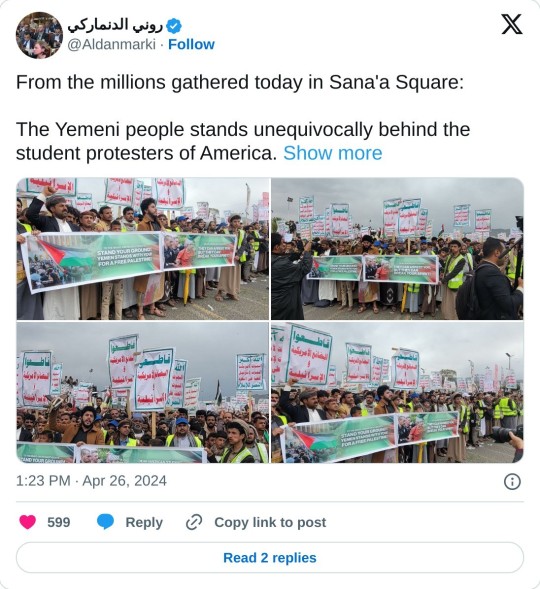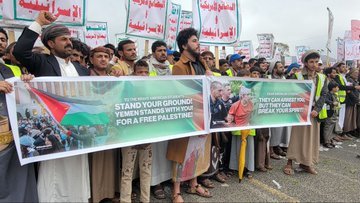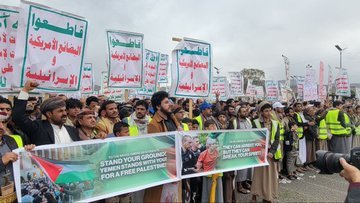Text
40K notes
·
View notes
Text
The Darg has passed into history – not without reason – as one of the most doctrinaire Marxist regimes that has appeared in the twentieth century. Well nigh until its demise, it came to pride itself on what it considered impeccable Marxist credentials. And yet, when the one hundred or so Darg members started deliberating furtively in the Fourth Division headquarters in the summer of 1974, nothing could have been further from their minds than the introduction of scientific socialism into Ethiopia. Their motto of Ityopya Teqdam[Ethiopia First] could at best be described as patriotic. Even when it graduated in December into hebratasabawinat or ‘Ethiopian socialism’, this marked only a grudging concession to the socialist creed. But that concession, grudging as it was, set the pattern for the Darg’s ideological orientation. A fundamental feature of the Ethiopian revolution – as regards both its antecedents and its course – was that its tone and parameters were set by the students. Indeed, the soldiers had first entered the February upsurge with strictly economic demands. It was the taunts and derisive comments of the students that pushed them into the political arena. The Darg, too, realized that, if it wished to hold on to power, it had to engage in the prevalent intellectual discourse. For something like two years, the Darg was engaged in a desperate struggle to catch up with the left, which was always a step ahead. It was only when the Darg took the supreme ideological leap and proclaimed the National Democratic Revolution in April 1976 that it could be said to have come level. From then on, it began to see itself through Marxist lenses, appropriating the role of historic vanguard of the struggle of the oppressed and exploited masses.
But, as suggested in the previous chapter, the left entered the revolutionary period in a divided spirit. In particular, the external wing of the student movement had been split into what in retrospect were pro-EPRP and pro-Ma’ison camps. Their attempt to forge a common organization having failed, the leaders of the two factions had been busy strengthening their camps behind the façade of student organizations. On the eve of the revolution an acrimonious debate had been raging over the seemingly innocuous issue of whether to form a World Wide Federation of Ethiopian Students (WWFES) or not – the pro-EPRP wing advocating and the pro-Ma’ison wing opposing the idea. The new structure threatened to make redundant the existing World Wide Union of Ethiopian Students (WWUES), which had been controlled by the pro-Ma’ison group. The Ethiopian Students Union in North America (ESUNA) had turned out to be solidly pro-EPRP while its European counterpart (ESUE) was divided into two antagonistic camps. Before the outbreak of the revolution, and while they remained confined to the student groups outside the country, these divisions were of little more than academic significance. After February 1974, they became intertwined with divergent interpretations of the nature and course of the revolution. Subsequently, they were transposed onto the national stage with lethal consequences as the ideological debate 244 almost inexorably drifted into a campaign of mutual extermination.
-Bahru Zewde, A History of Modern Ethiopia
Splitting up a very long quote into parts cause I think there's something to learn from the mechanics on display here - we previously saw the Derg start as a patriotic org first, and was pushed to marxism by the student movement. We ALSO saw that the student movement, separated from the masses materially, had become extremely sectarian. As the Derg moves towards the students for a support base, they partly lift these organisations and their internicine disputes into material relevance, and set the stage for the violence that follows later as the Ethiopian revolution starts to collapse.
0 notes
Text
i think its unfair to say king charles is "detached and unrelatable to the common folk" i also start wanting to die six months into working an easy as shit job
372 notes
·
View notes
Text
vodka is THE alcoholic beverage my friends, beer makes you bloated, rum/tequila make you sick - vodka just delivers, no frills
0 notes
Text


painting of running naked through field of cacti
109 notes
·
View notes
Text
youtube
in hindsight the lingua ignota-scored german history video game should probably trigger the same "you are being directly marketed to" paranoia that Ramy show does in me tbh
0 notes
Text

Every Friday, Yemenis gather by the millions to protest the genocide in Gaza. This Friday, they chose to honor college students protesting the Gaza genocide with slogans like: "Stand your ground! Yemen stands with you! For a free Palestine!"




431 notes
·
View notes
Text
AOC is at the Columbia encampment. The students need to wise up fast and kick her ass out.
4K notes
·
View notes
Text
Biden better plant some votes if he wants that election bc I don’t see it for that hoe at all….. he better go to them Illuminati meetings and pop some pussy otherwise it’s curtains for grandpa
10K notes
·
View notes
Text
In the end, the Darg had to make some concessions to its critics before it could carry out the programme. In a move designed to strike a happy compromise between its own creed and the socialist ideology that had deep roots among the intelligentsia, Ityopya Teqdam ["Ethiopia First"] was redefined as Ethiopian socialism or "Hebratasabawinat." The indigenous roots of the new creed were emphasized, an implicit critique of the exotic origins of the students’ Marxist ideology. Hebratasabawinat was supposed to include a host of principles such as equality, the primacy of the collective will, the right of self-determination within the framework of a united Ethiopia, and non-alignment.
-Bahru Zewde, a History of Modern Ethiopia
Worthwhile example of 1) how the Derg developed its ideology as a response to pressure from the doctrinaire marxism of their biggest civilian support base, the intelligentsia/the student movement, and 2) a common tension in revolutions in the global south between, idk, "internationalists" or marxists, and nationalist demands.
0 notes
Text
Fuck Israel and fuck everyone who still wants to pretend this is confusing or complicated. Is it really that hard to point out the "bad people" in a scenario where a multi-billion military apparatus is handcuffing and killing children and medical staff inside a fucking hospital?
15K notes
·
View notes
Text
i can't believe i have to explain this but you're not a real gamer unless you castrate yourself in honour of cybele
158 notes
·
View notes
Text
germany will always remain a very morbidly funny concept to me. large land of sweaty numbers-obsessive woodland beasts who, when given enough resources, make really good cars and, when given more resources, invariably start killing a lot of people
2K notes
·
View notes
Text
yo if anyone has that post with the collected quotes of early zionists(jabotinsky, herzl, ben gurion, etc) where they all directly say zionism is a colonial project pls send it to me
1 note
·
View note
Text
In 1950, Adenauer banned all communists from public service, and in 1956 outlawed the Communist Party of Germany (KPD), the Free German Youth organisation (FDJ), the Federation of Victims of Fascism (VVN) and the German-Soviet Friendship Society(DSFS), while protecting and reinstating former Nazis. In 1951, a special amendment to the constitution (Ausführungs-Gesetz zu Artikel 131 des Grundgesetzes) was passed by the Bundestag which marked the conclusion of this process. The law gave everyone, apart from the few top culpable individuals, the right to return to their posts in the public service. Similar laws were passed in all the regions, as in Schleswig Holstein, with its ‘Law on the ending of de-nazification’ (Gesetz zur Beendigung der Entnazifizierung“ on 31 Januar 1951). This meant in effect that the legal prosecution of former Nazis would no longer be pursued. However, the persecution of communists continued, with arrests and imprisonment - they became the political prisoners the West German government never acknowledged. By the mid-1960s, around 250,000 judicial investigations had been undertaken against suspected communists and around 10,000 were actually imprisoned as were socialists and others opposed to a remilitarisation of the country or were members of organisations working to promote links of friendship with the GDR. A big demonstration in May 1952 for peace and against the remilitarisation of Germany, was banned by the West German government. Despite this, thousands converged on the city of Essen, but were violently attacked by the police using live ammunition and dogs. Many young people were badly injured and three were shot in the back, one of whom later died of his wounds.
Stasi State or Socialist Paradise? The German Democratic Republic and What Became of It by Bruni de la Motte & John Green with Seumas Milne (Contributor), 2015.
154 notes
·
View notes

